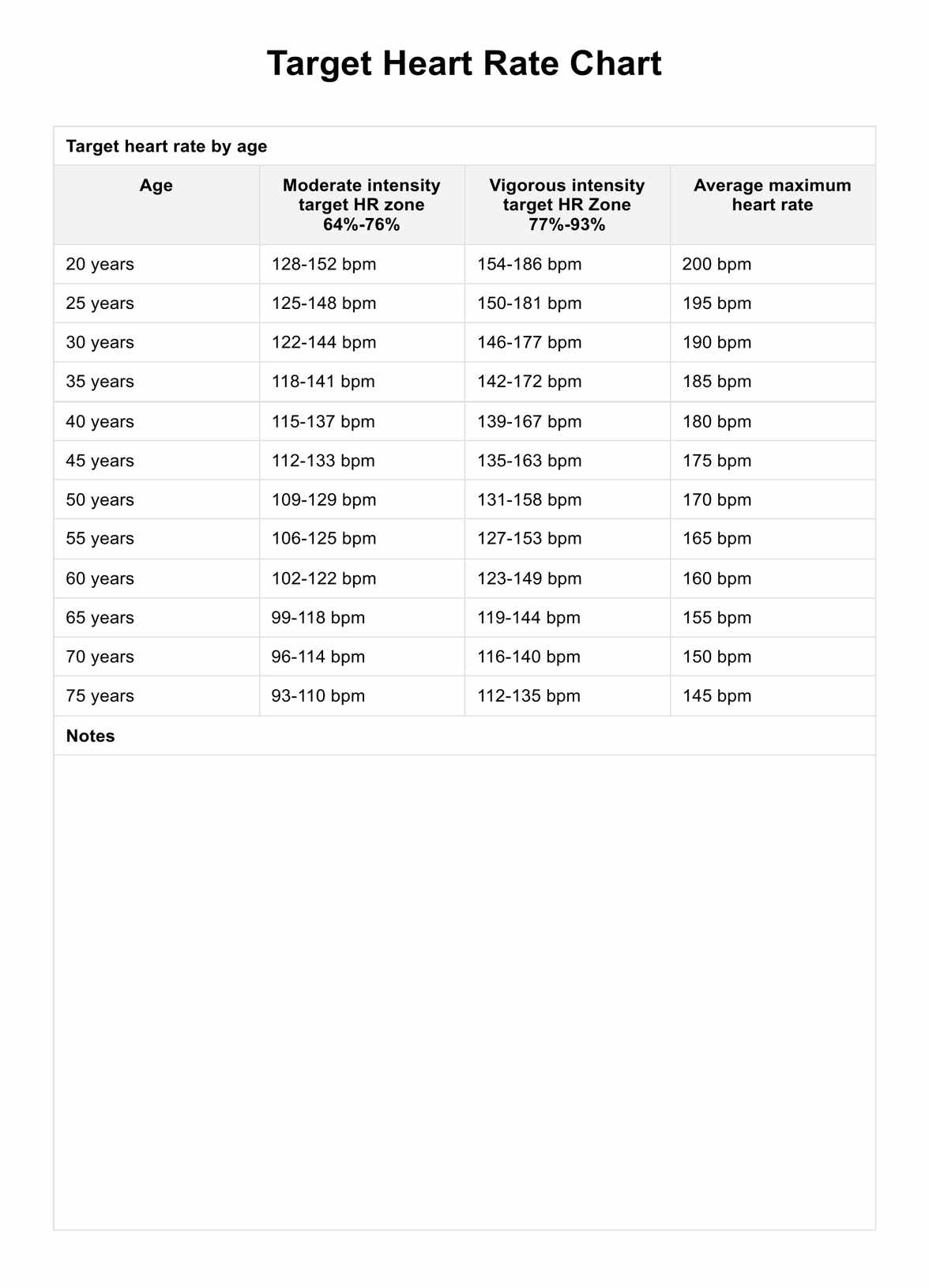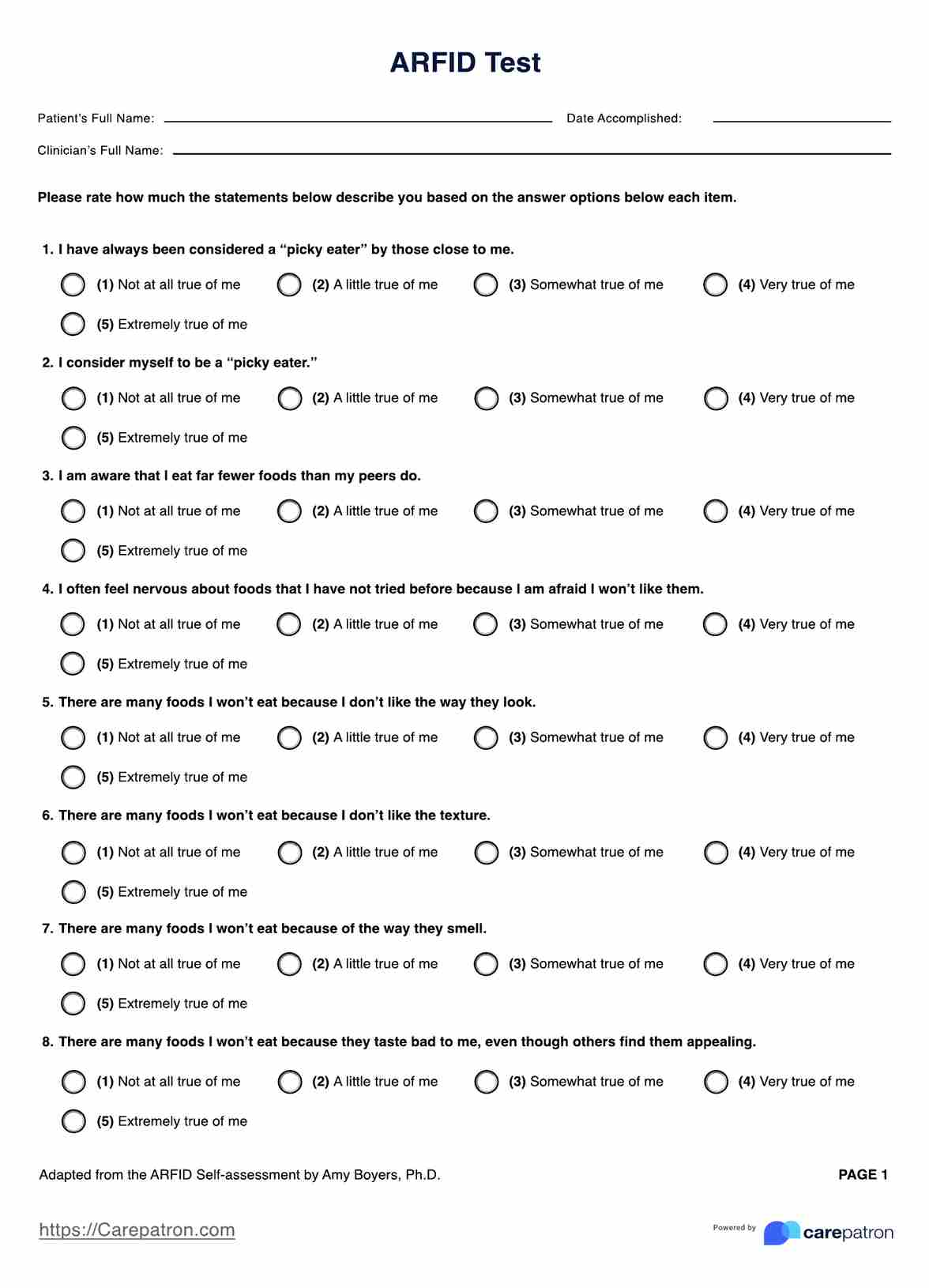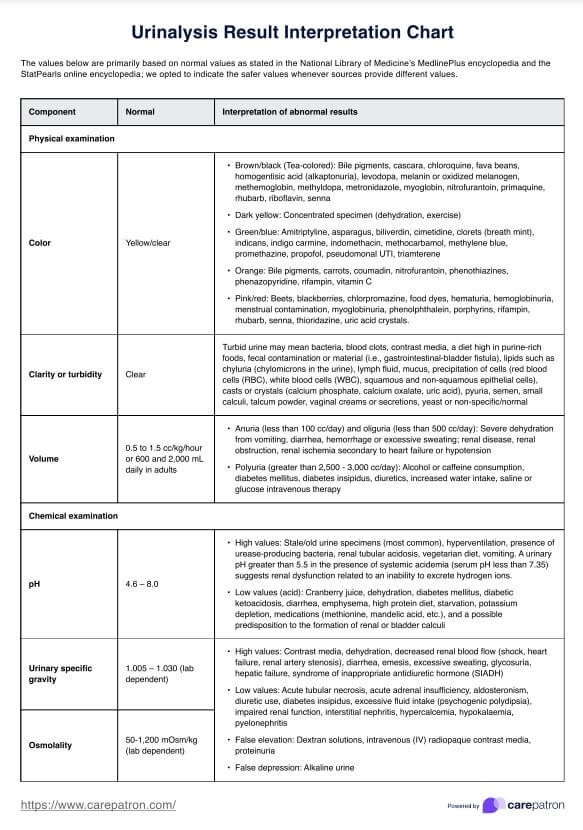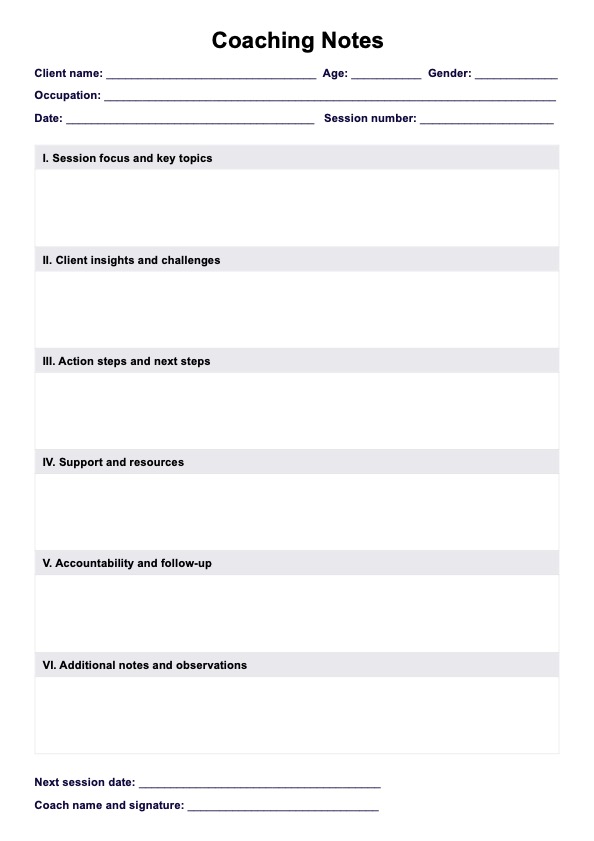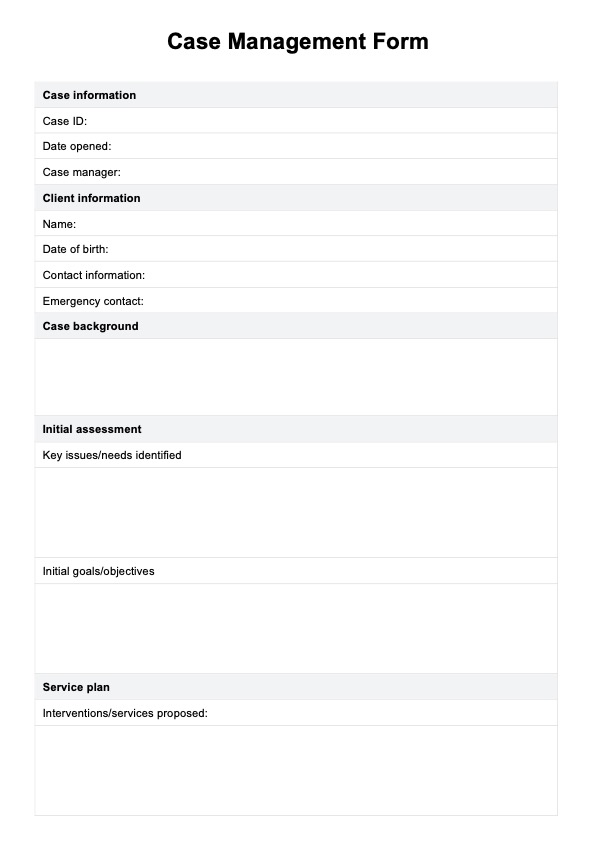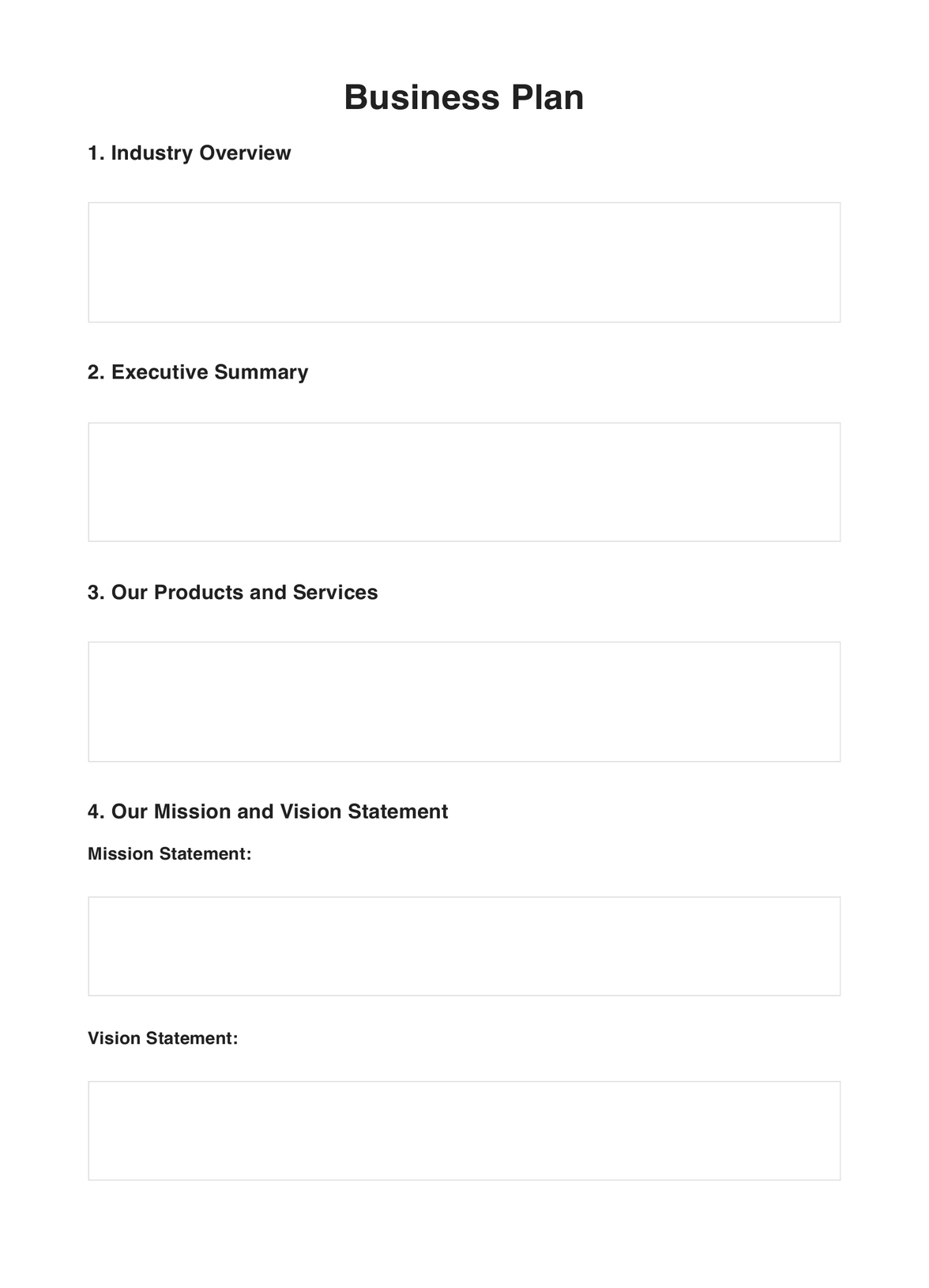Accountability Worksheet
Discover the Accountability Worksheet: A strategic tool for therapists and patients to foster responsibility and personal growth.


What is accountability?
Accountability, a fundamental concept in personal and professional growth, refers to taking responsibility for one's actions and consequences. It's about owning up to decisions, behaviors, and commitments, whether the outcomes are positive or negative. This sense of responsibility is crucial for growth, learning, and maintaining trust.
Accountability is not just about fulfilling obligations or duties. It's a reflective process where individuals evaluate their actions against their values, goals, and societal norms. By embracing accountability, individuals can lead a more conscious, purposeful life, making informed decisions aligned with their true selves.
Accountability Worksheet Template
Accountability Worksheet Example
How do taking accountability worksheets work
Using the Accountability Worksheet effectively involves a structured approach that benefits mental health professionals and their patients. Here's a step-by-step guide:
Step 1: Access this template
For instant download, click on the button we've included in this guide. If you have a Carepatron account, you may find it easily accessible to healthcare professionals and patients through our Templates Library.
Step 2: Reflect on past behavior
Encourage patients to reflect on recent instances and various aspects where they could have been more accountable. Discussing specific actions and their impact on others facilitates more profound understanding and self-awareness.
Step 3: Identify behavioral patterns and set accountability goals
Guide patients to recognize recurring patterns in their behavior that may hinder accountability. Understanding triggers, or situations leading to these behaviors can be illuminating. Moreover, it helps patients list specific areas for improvement. For each area, help them define clear and achievable goals, promoting a sense of direction and purpose.
Step 4: Develop strategies for achievement
Work with the patient in goal setting to devise concrete steps to reach these accountability goals. Discuss how they will measure progress and tackle potential obstacles while striving to stay accountable.
Step 5: Seek support systems, reflect, and track progress
Encourage them to identify supportive individuals in their lives. Discuss how to seek their support effectively, enhancing the journey toward greater accountability. Set dates for regular reflection on progress tracking. This includes noting improvements or challenges and ensuring ongoing evaluation and adaptation of strategies. Do not forget to remind them to set a realistic timeline to manage their expectations and achieve greater success.
Benefits of accountability to personal and professional development
Understanding the positive impacts of accountability is crucial, as it goes beyond mere responsibility. Accountability fosters vital benefits and life skills that enhance personal and professional life. Let's explore these advantages:
Enhances personal growth
Accountability is instrumental in personal development. It encourages individuals to reflect on their actions, learn from mistakes, and consciously improve. This continuous process of self-assessment and adaptation leads to significant personal growth.
Builds trust and integrity
Being accountable builds trust in relationships, whether personal or professional. When people take responsibility for their actions reliably, others perceive them as more trustworthy and dependable, essential for building solid and lasting relationships.
Improves decision-making and self-awareness
Accountability improves decision-making skills. When individuals know they'll be accountable for their choices, they're more likely to consider the consequences and make thoughtful, responsible decisions.
Boosts performance and productivity
In a professional setting, a culture of accountability can enhance overall performance and productivity. Team members are more likely to be engaged, motivated, and committed to achieving goals when accountable for their tasks.
Encourages ownership and empowerment
Accountability fosters a sense of ownership over one's actions and life choices. This empowerment can lead to higher self-esteem and confidence as individuals feel more in control of their destinies.
Facilitates clear communication
Practicing accountability often involves clear and honest communication. It requires explaining actions and decisions, leading to better understanding and reduced conflicts in both personal and professional relationships. If a person knows how to communicate clearly, it will also improve their other social skills.
When is it time to focus on accountability?
Understanding when to emphasize personal accountability is crucial for growth. Here are key moments when clients may need to improve their accountability:
Repeating mistakes
When clients repeat the same mistakes without learning from them, it's a sign that they might not be holding themselves accountable. Accountability encourages learning from past behaviors. This pattern suggests the need to pause and reflect on the causes.
Shifting blame to others
Blaming others instead of self-reflecting often prevents true personal growth. This reaction can block the client's ability to take meaningful responsibility. Guide clients to shift focus toward their role in a situation, enhancing their accountability.
Receiving negative feedback
Consistent feedback about being unreliable or avoiding responsibility may indicate an accountability gap. External feedback offers valuable insight into how clients are perceived.
Struggling to achieve goals
Difficulty achieving personal or professional goals can often be traced back to weak accountability. Failing to track progress or meet commitments undermines success. You can support clients in linking accountability to goal-setting and follow-through.
Experiencing relationship conflicts
Repeated conflicts or broken relationship commitments may point to a lack of accountability. Unkept promises erode trust and strain connections. You can work with clients to improve self-reflection and reliability and strengthen communication in their relationships.
Commonly asked questions
Accountability is measured by assessing whether individuals meet their commitments and responsibilities. This involves evaluating whether they stay committed to promises, take responsibility for their actions, and work towards agreed-upon goals. Finding an accountability partner can assist in tracking progress and continuous improvement.
To develop self-accountability, practice setting clear goals, monitor your progress, and reflect on your actions regularly. Accept responsibility for your decisions and outcomes, learn from mistakes, and strive to improve.
Accountability in the classroom looks like students taking responsibility for their actions, both academically and socially. It encourages a growth mindset, allowing students to learn from mistakes, create goals, and stay committed to their work. This helps build respect for others, improves well-being, and supports personal growth.
Demonstrate accountability in the workplace by meeting deadlines, keeping promises, owning up to mistakes, and seeking solutions. Communicate effectively, set realistic expectations, and commit to your responsibilities and team goals. This will also foster effective collaboration and continuous improvement for everyone.


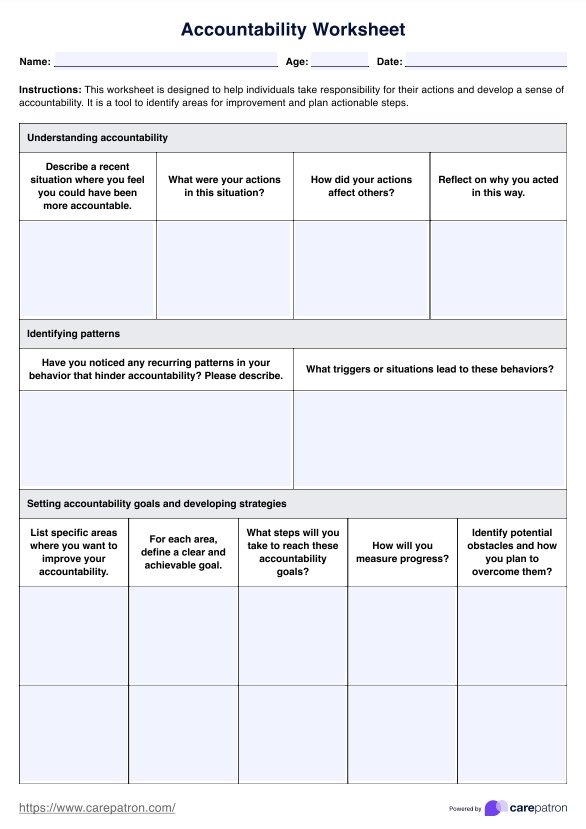
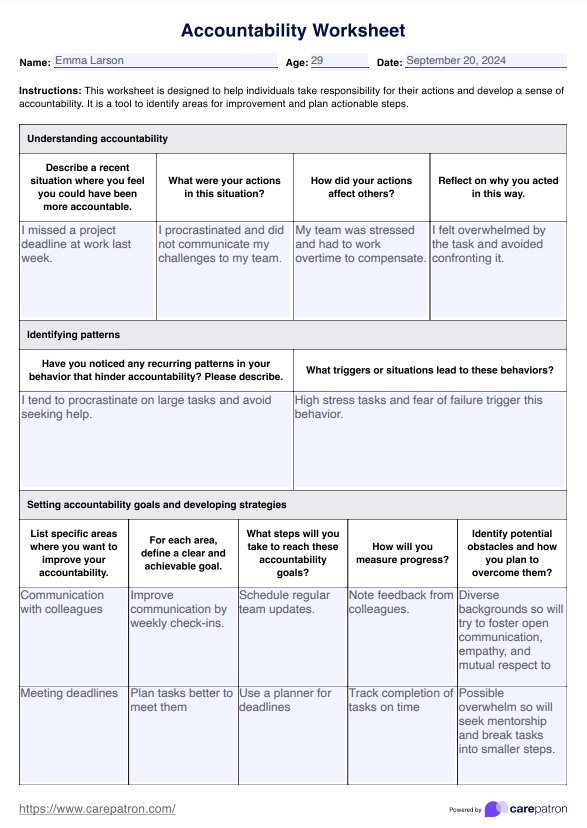




















-template.jpg)















































































